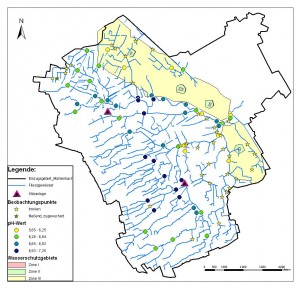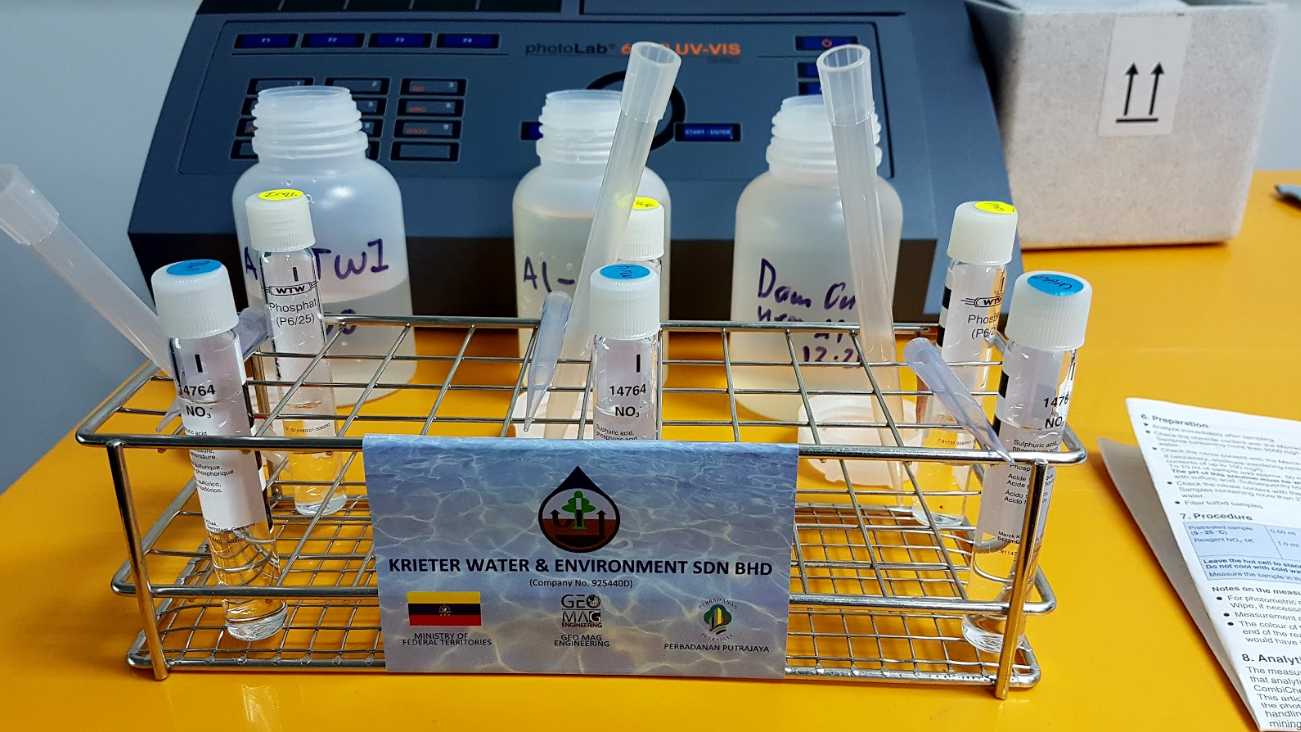The water chemistry allows the identification of the origin of water, its pollution and quality. So water chemistry is essential on any decision on the use of water resources.

Even without any human activities the chemical composition of ground and surface water would represent the natural processes within the catchment and is named “natural background composition”. The degree of a pollution is the difference between actual (polluted) composition and the natural background.
Water can be polluted by either direct or indirect transport of pollutants into the water bodies. Sources of surface water pollution are :
- point source pollution (discrete location as a factory etc) or
- non point pollution (diffuse source as nitrogen leaching out from agriculture areas via groundwater and at last exfiltration to a surface water body).
Groundwater can be polluted by soil leachate or by infiltration of polluted surface water. In coastal aquifers the overexploitation of groundwater can cause serious problems of salt water intrusion.
 KRIETER WATER & ENVIRONMENT has decades of research experience in the chemistry and pollution of ground- and surface water bodies. We are measuring and interpreting:
KRIETER WATER & ENVIRONMENT has decades of research experience in the chemistry and pollution of ground- and surface water bodies. We are measuring and interpreting:
1. pH, conductivity, organic content, radioactivity, age
2. redox potential, buffering capacity
3. isotope contents/relations (age, origin, tracer)
4. cation and anion contents
5. heavy metal content
6. nutrient and pesticide content
and investigating the pollution processes of,
1. inorganic matters (heavy metals, ammonium, nitrate,chloride, chemical waste, etc.)
2. organic matters (waste water, food processing waste, pesticides, petroleum, etc.)
3. thermal impact (coolant by power plants, industry, landfills, etc.).
KRIETER WATER & ENVIRONMENT offers a large scale of research programs on water pollution problems:
1. development of site and pollutant specific measuring/monitoring programs
2. sampling, analyzing, mapping reporting
3. taking account of Natural Attentuation (decay of pollutants)
4. impact of oxygen-depleting substances on water bodies
5. investigation of eutrophication, saprobity processes and bioindication
6. bacteriological water analyze
7. development of site specific counter measures against water pollution
8. hydrogeochemical modelling
9. saltwater intrusion problems.

